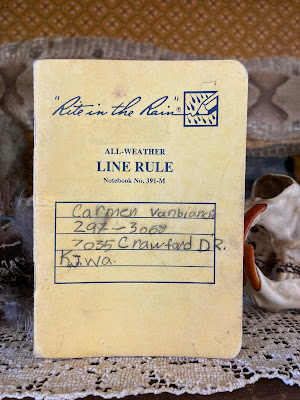A lifetime of science
From an early age, I was exposed to field science by my botanist father. I was handed a Rite in the Rain field notebook to take nature notes in before I could write an actual sentence, and had started my skull collection by age ten. What I was going to be when I grew up matured when I was a teenager from "saving the earth" to zoologist, with no real understanding of what that meant other than studying animals It wasn't until at I received a gift subscription to The Wildlife Society Magazine at age seventeen that a name was given to the career I envisioned for my future: wildlife biologist.
By my early 20's I had graduated with a degree in Wildlife Management and Conservation from Humboldt State University and was working as a seasonal wildlife field technician hopping from state to state and working with a variety of wildlife species. I loved the constant change of scenery and learning new ecosystems; here was what a bear rub-tree looked like in the swamps of Louisiana, and here was what a bear rub-tree looked like in Alberta, Canada. Here was how lynx habitat in Maine looked, here was where re-introduced lynx in Colorado denned.
But I began to miss having roots and my family back in Washington. I decided to return to my home state and picked the Methow Valley as my new community and ecosystem. I loved getting to know the North Cascades and the excitement of moving to new and different places was replaced by the satisfaction of learning in-depth the natural history of an environment and noticing the patterns and changes over the years. I worked with beavers in the Methow Watershed, hunted mule deer in the high country, and analyzed lynx habitat in the North Cascades for my masters thesis. Western landscapes and their ecosystems have my full attention and I am invested in their conservation.
I believe that effective wildlife research starts with field-based observations and a close understanding of the study ecosystem. In addition, as climate change and other human impacts alter western landscapes at an accelerating pace, I am dedicated to research with outcomes that can be directly applied to wildlife management and conservation. At Home Range Wildlife Research, we are committed to just that and it is my goal as a co-founder to leave western wildlife populations richer and more resilient to climate change.
Carmen is Research Director for Home Range Wildlife Research. Read more about her role in the organization here.

